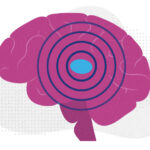New research shows caregiver instability affects development

According to some estimates, more than 100 million children around the world experience separations from their caregiver every year. Previous research — much of it derived from the long-running Bucharest Early Intervention Project (BEIP), which followed Romanian orphans from infancy to age 22 — suggests that caregiver disruptions like separations or changes in placement can have a host of detrimental effects. These include cognitive delays, stunted growth, and an increased risk of psychological disorders.
Now, a recent study by the BEIP’s principal investigator Charles Nelson, PhD, Boston Children’s research fellow Ellen Jopling, PhD, and others highlights another risk: caregiver disruptions early in life may affect puberty — and potentially speed up the aging process.
Examining a cascade of biological processes
As part of a collaboration between Boston Children’s Department of Psychiatry and Behavioral Sciences and Division of Developmental Medicine, the team analyzed data from 115 Romanian orphans who were part of the BEIP. They found that disruptions in the form of caregiver separations (such as new placement) in the context of early institutionalization impacted biological development across the second decade of life. Specifically, the team discovered that a greater number of caregiver disruptions led to later onset (age) of puberty and increased tempo of the actual puberty process. In other words, the children entered puberty later but then moved through it at an accelerated pace. This came at a physical cost: accelerated biological aging.
This developmental pattern may allow adolescents to “catch up” with their peers in the short term. However, it has also been linked to telomere erosion over time. Telomeres are the caps at the end of chromosomes that protect them from damage; shortening of telomeres is linked to cellular aging and disease. Prior research links shortened telomeres with cardiovascular disease, type 2 diabetes, depression, and more.
“Our research highlights just how much children stand to gain from policies that keep children and caregivers together,” says Jopling.
On the horizon: Future research
Jopling and her colleagues say their results reinforce how critical early caregiving stability is for child development. Childhood adversity has far-reaching effects, and this global research collaboration adds an important layer to the conversation. “Future work should consider why certain children experience more disruptions than others, as well as the biological mechanisms through which caregiver instability influences puberty,” says Nelson.
Learn more about our Department of Psychiatry and Behavioral Sciences and Division of Developmental Medicine.
Related Posts :
-

Team spirit: How working with an allergy psychologist got Amber back to cheering
A bubbly high schooler with lots of friends and a passion for competitive cheerleading: On the surface, Amber’s life ...
-

The thalamus: A potential therapeutic target for neurodevelopmental disorders
Years ago, as a neurology resident, Chinfei Chen, MD, PhD, cared for a 20-year-old woman who had experienced a very ...
-

Delving into the causes of attention deficits: Childhood adversity, lost sleep, and dopamine
New research on the effects of adversity in childhood ties together stress, sleep loss, and attention deficits later in life. ...
-

Reversing the trend: Easing the mental health boarding crisis in emergency rooms
Anxiety, depression, and suicide attempts have been rising over the past decade, especially among teens, often landing them in emergency ...





